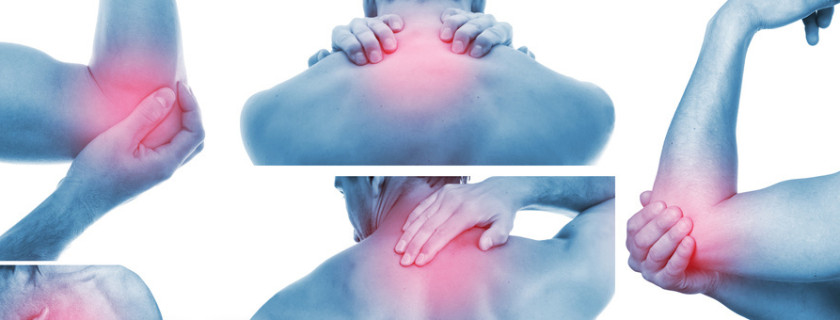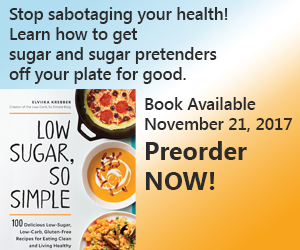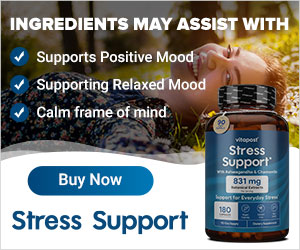Pain is sometimes associated with anxiety and it may serve as an indicator of the disorder. While some people may suffer the usual pain, some experience chronic pain such as fibromyalgia or arthritis. The anxiety may cause the pain or the pain cause the anxiety.
For instance, a person with recurring chronic pain may develop an anxiety disorder due to the stress that is caused by the pain to the body. On the other hand, having an anxiety disorder can make you become hypersensitive even to the mildest of pain and you may not differentiate between severe pain and normal pain. Being anxious is associated with worry, fearful thinking and causes stress. Stress makes the body release stress hormones that target different parts of the body causing physiological and emotional changes to prepare the body to deal with a threat. One of the things the stress hormone does is to cause muscles to contract so that the body can attack if it is faced with a threatening situation. However, when anxiety causes the stress instead of a real threat, the muscles tense.
Different types of anxiety pain
As there are different types of anxiety, there are different types of anxiety pain as well. Therefore, the treatment provided should be based on thy type of pain you are experiencing. They include:
Find YOUR Way To Curb Anxiety!
-
Muscle pain
The pain occurs due to muscle tension that strains the muscles. It may also be caused by how you may adjust to muscle tension, which is noted if you sit slouched when having anxiety. It can even be chronic pain muscle pain known as fibromyalgia.
-
Headaches
Headache is one of the most common pains experienced because of anxiety. The pain is severe such as migraines, affecting even other areas of the brain and pain around temples. It is not like the usual tension headache even many times anxiety-related headache is caused by muscle tension.
-
Arthritis
Arthritis is a medical condition that affects joints and the musculoskeletal system. It is experienced in form of stiffness, inflammation, pain, joint cartilage and structures surrounding it being damaged. Arthritis can result to the damage of any of the body organs. Most people with arthritis especially the younger ones have mood disorders such as depression and anxiety.
-
Chest pains
Chest pain is a symptom of anxiety, which can be caused by hyperventilation. Hyperventilation occurs due to anxiety. The pain may feel like a heart attack to some people. Hyperventilation and chest pain cause panic attack and they are some of the symptoms associated.
-
Stomach pain
Another symptom of anxiety is stomach pain, which is caused by indigestion. Indigestion causes bloating and gases that cause pain. Hyperventilation is another cause of stomach pain because it makes some people feel bloated.
-
Back pain
Muscle tension caused by anxiety also causes back or shoulder pain. Other factors such as how you sleep when anxious and how many times you stretch can also be contributing factors to the pain. You know you have back pain if you feel that your back is stiff, sore and painful most of the time and if this happens without any reason or from normal tasks that would not normally cause the pain. Anxiety back pain can occur before, during or after being anxious, stressed or nervous. The pain can be severe, moderate or mild.
-
Eye pain
Eyes may also feel pain during anxiety because of the strain of the muscles around the eyes caused by stress. You may also feel pain in the eyes when you go to the light due to the dilation of pupils when you are anxious. It might be a good idea to get your vision checked by ophthalmologist in case you need prescription for eyeglasses.
-
Tingling pain
Anxiety can cause tingling feet and hands as well as in other body parts. For other people, instead of the tingling pain, there is burning or pain. It’s worth ensuring that you are not lacking certain minerals. For example magnesium deficiency is very common and can cause both anxiety and tingling pain in feet and hands. If you suffer from anxiety or tingling pain, it’s a good idea to take an efficient magnesium supplement.
-
Joint pain
Joint pain is an anxiety symptom which may be caused by physical adjustments, hypersensitivity and inflammation caused by anxiety. Although the pain can be troubling, it is manageable. Try to avoid pain killers, medication is never long-term solution. Be sure to eat anti-inflammatory food to heal the inflammation in your body. Giving up processed food, grains, sugar and vegetable oils (like soy, sunflower, corn or canola oil) is the first thing to do. Use coconut oil and olive oil as well as animal-based fats as they are anti-inflammatory. In addition to magnesium — that you can also apply topically — you can supplement with Vitamin D.
-
Throat pain
Although the anxiety may not directly cause throat pain, it may be caused by acid reflux due to a change in stomach acid. This can result to coughing, which may irritate the throat and cause throat pain. Many times tight muscles caused by anxiety can manifest as throat pain. Then different relaxation techniques come in helpful.
-
Testicle pain
Testicle pain is usually not the only symptom of anxiety. There are often other physical symptoms as well, like irregular bowel movements, pain stomach or in the lower back. Testicle cancer is extremely rare, but for your own peace of mind you might want to have it checked. If you encounter testicle pain, be sure that you are not wearing tight underpants as those are one of the most common reasons for testicular pain.
Other pains that you may experience when you have anxiety include leg pains, arm pains and more. These pains are likely to cause more anxiety as you cope with them.
Check out this painless method to get rid of anxiety and anxiety pain!
Dealing with anxiety pain
Due to the many different anxiety pains, to deal with each pain you need to learn about it and know how you can deal with it. For instance, if you are suffering from muscle pain, you can use massaging techniques or simple stretches to manage it.
-
Relaxation
However, the trick lies in relaxing the muscle that tense during anxiety. When the muscles are relaxed the symptoms of tension reduces. Some of the things you can do to relax include:
- Reducing the stress by resting, getting enough sleep and deep breathing.
- Placing a heat pad on the tense muscles to relax them.
- Doing exercises to loosen the muscles such as gentle stretching.
- Having a massage.
- Resting to give the body time to reduce the stress.
- Taking time off work.
- Slowing down from a hectic lifestyle.
- Taking a warm bath.
- Avoid using stimulants.
- Laughing and having fun.
- Meditating.
- A hug or a caress from a loved one.
Generally, relaxing reduces the stress, which in turn relaxes the muscles to help reduce the pain. However, you should look for ways to reduce each type of pain.
-
Medication
Medication can be used to relief the pain. Sometimes one medication can be used for the anxiety and the pain. Discuss with your doctor to find the best medication for you.
-
Therapy
Cognitive behavioral therapy can be used for the anxiety and to eventually reduce the pain. CBT is one of the most effective ways to treat anxiety. There are also several powerful self-help programs which you can tailor according to your needs and use successfully to get rid of anxiety and panic attacks. This will naturally help curb anxiety pain, too.
-
Alternative treatment
Alternative treatment such as acupuncture, yoga, homeopathy or massage can be used to relieve the anxiety and therefore the pain. There are several natural anxiety treatments that bring help. To reduce pain and inflammation, you can try seasonings like turmeric, ginger and rosemary. They all are very effective, especially turmeric which is said to have similar — or even stronger — effect than painkillers.
-
Diet
Believe or not, the food you eat has a tremendous effect on your mind and body. You can do a lot by changing your diet. Omitting all processed foods from your diet is the first step that surely helps improve mood, and thus get rid of anxiety and anxiety pain. Choose only natural, clean and unprocessed foods, and preferably make your food yourself from simple, nutrition-dense ingredients. I have written a lot about this topic and also published several cookbooks, but in the future I hope to be able to write a more comprehensive book about nutrition therapy for anxiety — with lots of easy recipes, naturally. Here is one of my books, it provides you with easy recipes that are nutritious and help curb anxiety. I regularly publish anti-anxiety recipes on this blog as well, so be sure to check them out. On my other blog, you will also find easy and healthy recipes. Right diet also helps you balance your hormones as hormones and anxiety often go together.
Don’t forget to familiarize yourself with supplements, too, as some of them are really pain and anxiety killers.
The best drug-free method to get rid of anxiety PAINLESSLY!
Conclusion
Anxiety comes with different types of pain. Sometimes the pain causes the anxiety and in other cases, the anxiety causes the pain. Some of the pain you may experience include back pain, chest pain, eye pain, joint pain, headaches, arthritis, throat pain and more. Pain is caused by the muscles that are tense due to the false alarm raised when one is anxious.
To deal with the pain, it is important to treat each pain appropriately instead of taking a general approach. For instance, the way you treat throat pain should be different from how you treat headaches. However, general relaxation can help to reduce the stress, which causes the anxiety, and therefore reduce the pain. Don’t forget the healthy diet either, choosing right foods has a tremendous effect on your whole body and your mind. Also applying a high-quality, holistic method, which contains both mental and physical exercises as well as healthy way of eating, is one cornerstone in curbing anxiety and keeping anxiety pain at bay.






